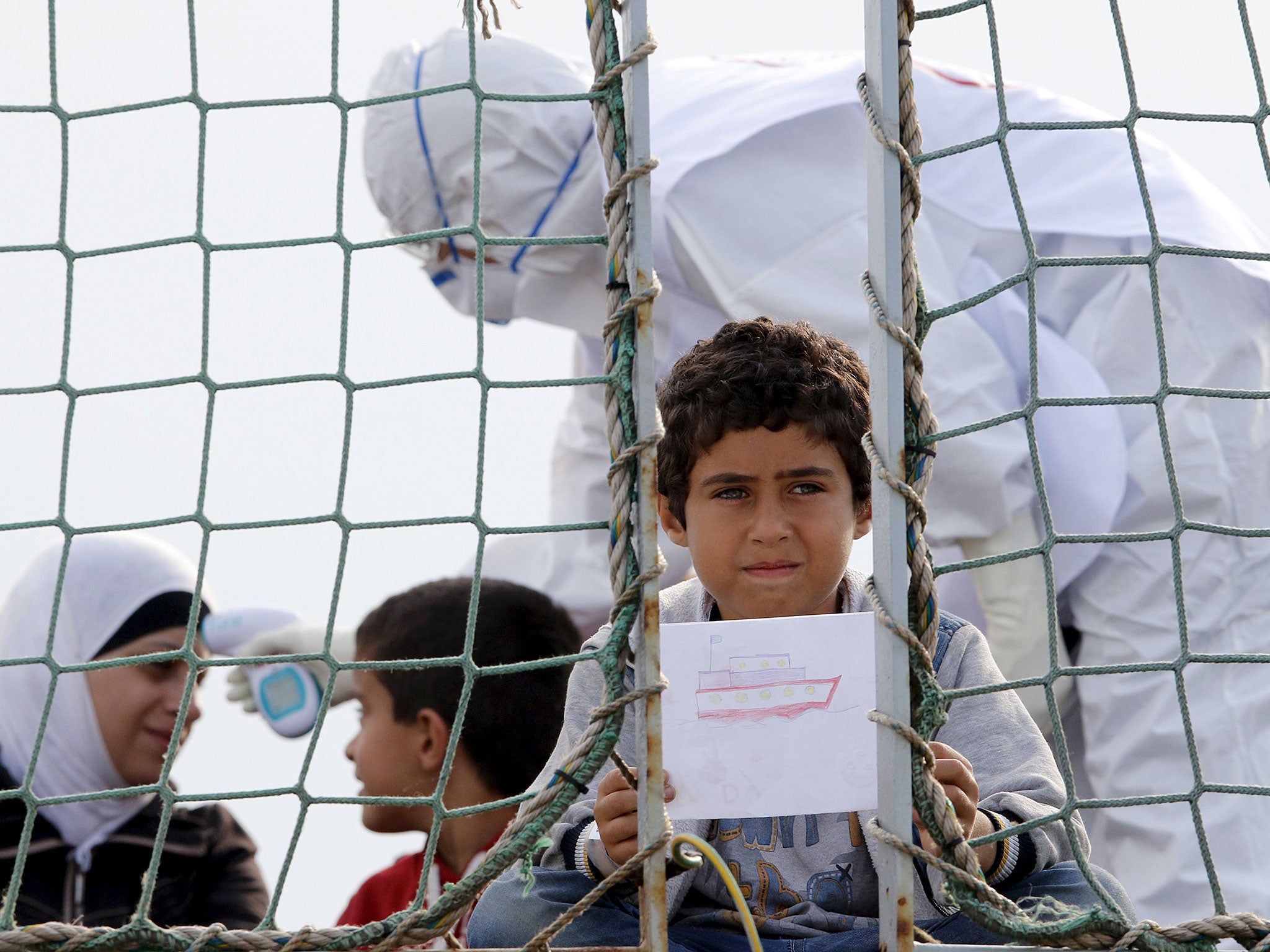UK government could make £5m profit on plight of Syrian refugee children
Department charges children at risk of abuse, child labour and child marriage over £1,000 even if entitled to British nationality

The UK Government stands to make up to £5 million in profit by charging children who have escaped from violence and terror in Syria for British citizenship applications.
Some 8,789 minors arrived in the UK between 2014 and the first three months of 2019 under the Vulnerable Persons Resettlement Scheme (VPRS) and the Vulnerable Children Scheme (VCS).
Starting from next year, they could apply to register as British, but face a £1,012 fee to do so, setting up a potentially massive windfall for the Home Office.
The VCS scheme was devised to help children “threatened with child labour, child marriage and other forms of abuse or exploitation”.
Through VPRS, the Home Office worked “with the UN High Commissioner for Refugees (UNHCR) to identify those most at risk and bring them to the UK”, and to help “those in the greatest need”.
But now the Home Office stands to profit off them. Each application costs the department £372, meaning it makes £640 in profit for every child that register.
If every Syrian child relocated under VPRS and VCS applies, the Home Office could stand to make £5,624,960 in the next few years, according to an analysis by the International Observatory of Human Rights (IOHR).
A Home Office spokesperson described the figure as “speculative and hypothetical,” given it is not mandatory to apply for citizenship to live, study and working in the UK.
“There is no fee for applying for settlement as a refugee or person who’s been given humanitarian protection,” they added.
However, Nour Sakr, a lawyer from the IOHR, said: “It isn't correct to suggest citizenship and indefinite leave to remain amount to the same thing.
“Indefinite leave only allows you to exist here, it doesn't give you the right to free movement. It doesn’t allow you to have access to education funding unless you meet certain criteria. It also doesn't give you the right to apply for certain government jobs but most importantly it doesn't give you an identity or a nationality.
“The Home Office should know they are not the same thing and that ILR status does not entitle a passport.
“Many people who come or were born here as refugees do not have another passport- this is the only one they will have.”
Application fees have more than doubled since the beginning of the Home Office’s hostile environment policy – it was £500 in 2011. When it was introduced in 1983, the fee was just £35.
Children born outside the UK but with a connection to the country, such as those who have grown up in the UK from a young age, are entitled to British citizenship under the British Nationality Act 1981.
Steve Valdez-Symonds, Refugee and Migrant Rights Director at Amnesty International UK, said: “The Home Office has fundamentally misunderstood its duties to children whose lives and futures clearly lie in the UK.
“Seeking to profit off children, and preventing poorer children from claiming their rights to British citizenship, is hugely harmful to children and their chances to feel and be fully part of the country that is their home.
“This affects both children who have citizenship rights through resettlement programmes but also those who are born and grow up in this country.”
The UK charges the highest nationality fees of any major European economy. Similar applications are free in Denmark and Luxemburg. Belgium and France do not charge state fees although there are minor local fees. In Germany, the cost ranges from £45 to £227.
“It can’t be right that a family with three kids will be expected to pay out £5448 to try and secure a safe future, with nothing guaranteed at the end of the process,” said Valerie Peay, the director of IOHR.
Not having British citizenship means people do not have the right to vote, and their access to further education is severely limited.
A child refugee must be a UK resident for six years before they can apply for citizenship and will spend the first five years on a refugee visa before they can apply for indefinite leave to remain.

After a further year, those who meet the eligibility criteria are able to pay the fees and apply for citizenship.
Only a few dozen of the 8,789 Syrian youngsters will be eligible to register as British next year, but numbers will increase as more reach the six-year threshold and more are resettled in the UK.
If the application is refused, applicants are not refunded. If children want to re-apply for citizenship, they must pay the fee again.
On top of the £1,012 fee, children are required to pay £19.20 to provide biometric information and £80 to attend a citizenship ceremony if a minor turns 18 during the application process.
The Home Office makes £2m a month from child citizenship fees and has made almost £100m in profit from children registering as British citizens over the last five years.
Join our commenting forum
Join thought-provoking conversations, follow other Independent readers and see their replies
Comments
Bookmark popover
Removed from bookmarks